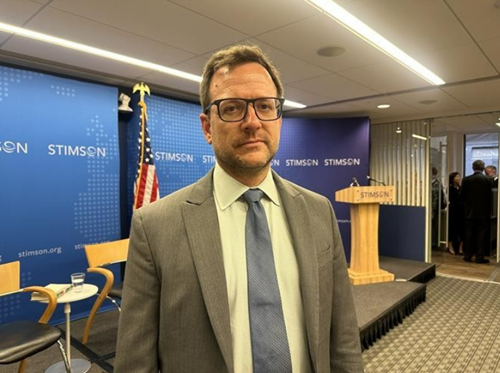In an interview with the Vietnam News Agency (VNA) correspondent in Washington on the occasion of the 30th anniversary of the normalization of diplomatic relations between Vietnam and the U.S. (July 11, 1995-2025), Eyler named former President Bill Clinton, former Senator John Kerry, and late Senator John McCain and their counterparts in Vietnam among people that brought the Vietnam-U.S. relationship forward and turned it into the incredibly robust and strategic relationship as it is today.
    |
 |
|
Brian Eyler, a senior fellow and Director of the Southeast Asia Program at the the U.S.’s Stimson Center |
He underlined that no progress can happen on trade and investment without war legacies, which served as a cornerstone of the bilateral relationship for a very long time.
Eyler called the war in Vietnam a mistake for the U.S. - one that should have never happened. It affected millions of Vietnamese and hundreds of thousands of Americans. He noted that many U.S. veterans came to realize the wrongs of the past and have since sought reconciliation, viewing Vietnam as both a friend and a partner in building a renewed relationship.
Regarding the cooperation prospects between the two countries, Eyler highlighted that war legacies are critically important to continue moving forward on. He underlined that there's so much more that needs to be done in terms of cleaning up dioxin, Agent Orange, as well as finding unexploded ordinance and providing assistance to people with disabilities.
Agent Orange/dioxin is something that is passed down, hereditarily, to the next generation, and will continue to be passed down, he underscored.
The researcher held that beyond post-war legacy issues, the two countries can cooperate in matters related to the Mekong River and maritime security. He underscored Vietnam’s critical role in global food security, noting that the world is increasingly reliant on food supplies from Vietnam. However, challenges such as climate change, extreme weather, and water scarcity are placing pressure on the economic output of the Mekong Delta.
He went on to say that the U.S. can provide technical assistance to help farmers in the delta transition to higher value agricultural products.
The U.S. has a lot to offer with drought resistant and value added crops, and develop supply chains that can bring together Vietnamese farmers and businesspeople in the delta for a higher a higher yield of income for their businesses, stated Eyler, stressing that collaboration needs to come together on resilience for the Mekong Delta, as sea level rise is happening, undoubtedly, salinity intrusion is pushing farther into the Mekong Delta.
The U.S. has tools and partners who are ready to engage in improving Vietnam's resilience to what's happening to it, said Eyler.
Source: VNA